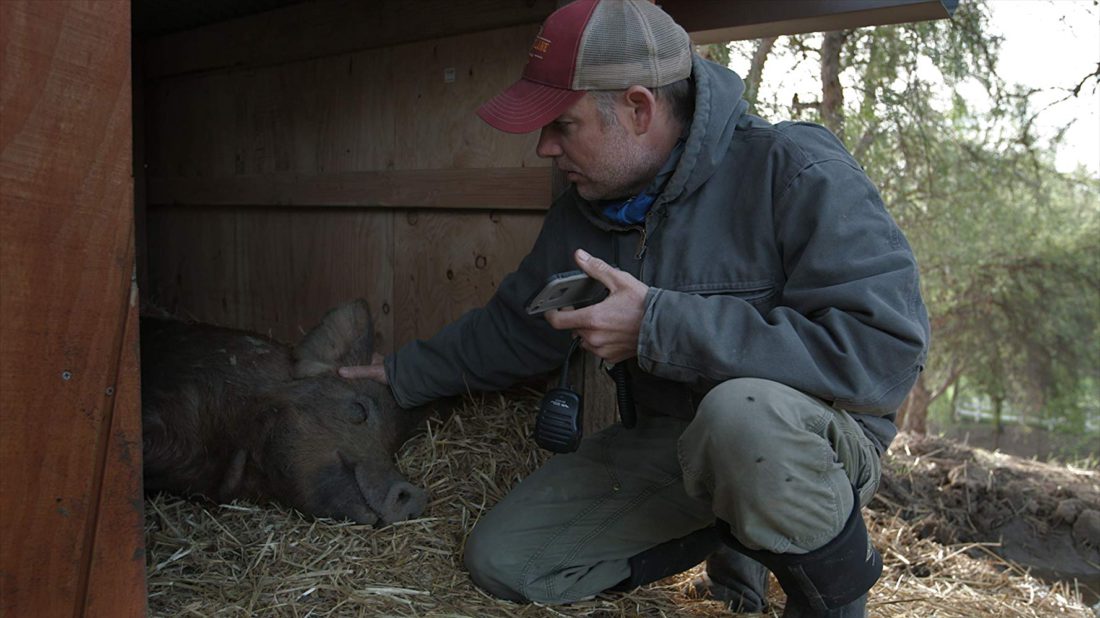Variety isn’t just the spice of life — it’s an essential component. And so goes the message of The Biggest Little Farm, a journey through the trials and tribulations of Molly and John Chester, a young couple with a dream to begin and maintain a biodiverse farm on 200 acres in Moorpark, Calif.
The goal: sustainably produce every ingredient that Molly uses in her work as a private chef. The method: use traditional farming practices and a diversity of crops and livestock, all while living in harmony with the surrounding ecosystem. The Chesters are not the first to take on the fight against the factory-farm, monoculture paradigm, but they may be the first family with a background in documentary filmmaking to do so, experience that shines via beautiful cinematography and a gripping narrative.
Viewers with even rudimentary knowledge of farming or backyard gardening would no doubt expect to see the predictable litany of problems these farmers face. But the way this film takes us through these setbacks is as heartbreaking in its delivery of each problem as it is romantic and hopeful in their resolutions.
The resulting moral of the story is that a sustainable return to farming is possible but requires much patience, problem-solving and resolve through overcoming tragedy and death. How much patience exactly? In this case, at least seven years to finally get the closed-loop ecosystem in balance, with every plant, animal, pest and predator serving a role to benefit one another.
To their credit, the filmmakers do not shy away from showing the vicious cycle of life and gruesome death. The Chesters struggle with their commitment to live in harmony with the predatory forces of nature around them when coyotes repeatedly take down entire flocks of ducks and chickens, while snails and gophers threaten to decimate the entire orchard of fruit trees. But their perseverance pays off in a big way and teaches viewers that the more diverse the ecosystem, the better able it is to thrive, bounce back from natural disasters and flourish.
Also in its favor, The Biggest Little Farm doesn’t go so far as to directly blame homogenous factory farming for the disasters — including droughts, floods and the California wildfires — that regularly threaten the Chesters’ property. Nevertheless, discerning viewers can read between the lines that these extreme weather threats are a result of the climate change to which factory farming certainly contributes.




Before you comment
The comments section is here to provide a platform for civil dialogue on the issues we face together as a local community. Xpress is committed to offering this platform for all voices, but when the tone of the discussion gets nasty or strays off topic, we believe many people choose not to participate. Xpress editors are determined to moderate comments to ensure a constructive interchange is maintained. All comments judged not to be in keeping with the spirit of civil discourse will be removed and repeat violators will be banned. See here for our terms of service. Thank you for being part of this effort to promote respectful discussion.